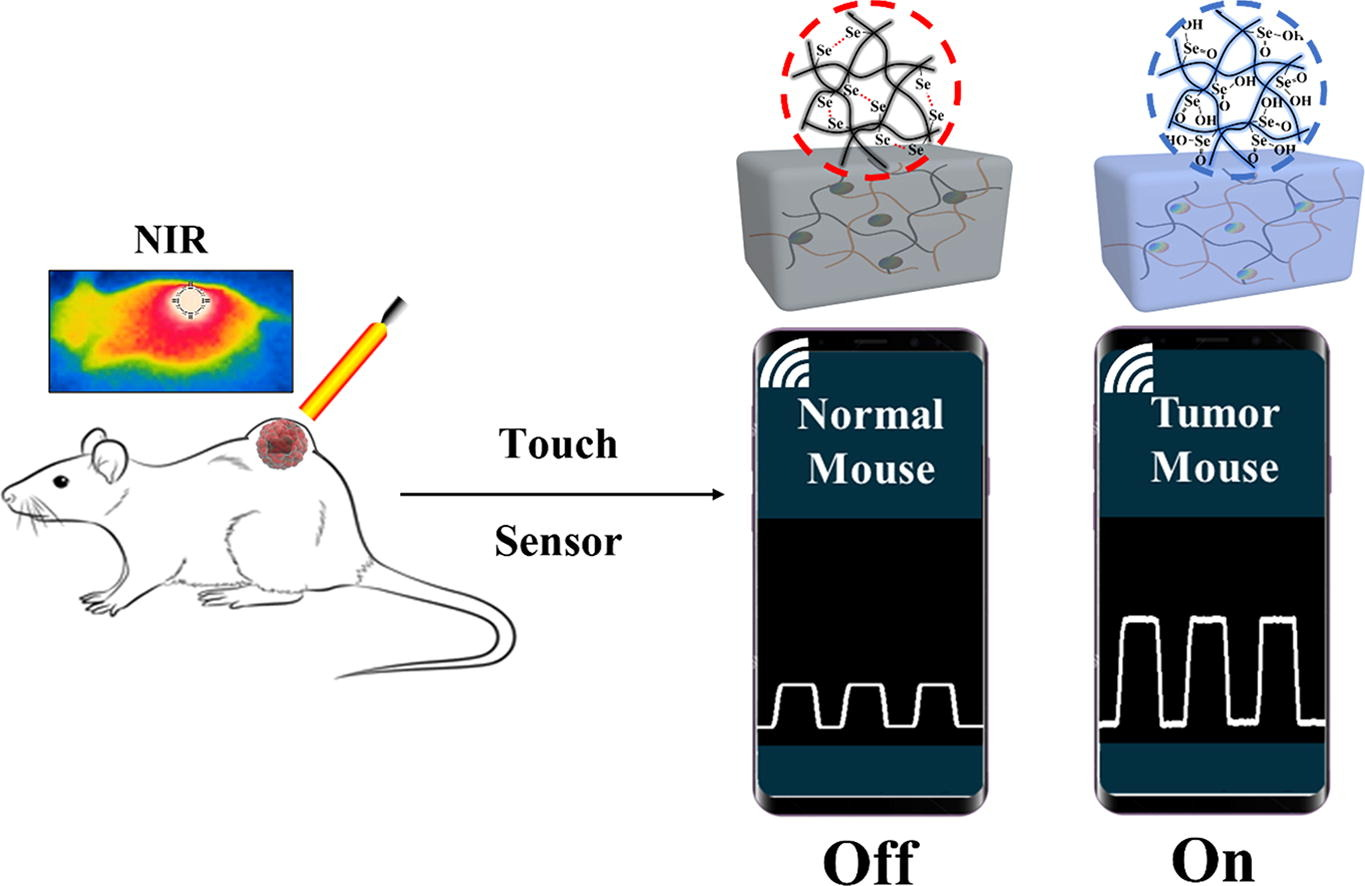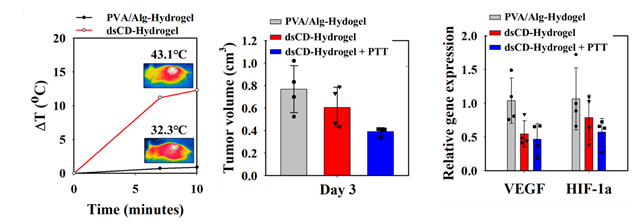Prof. Suk Ho Bhang (Department of Chemical Engineering)
Developed Conductive Hydrogel Customized for Tumor Detection and Removal
-Reactive oxygen species responsive hydrogel-based tumor excision technology
-Wireless monitoring constructed through conductivity-based machinery and electronic control
Prof. Suk Ho Bhang’s research team (Department of Chemical Engineering, first author: Gwang-Bum Im) developed reactive oxygen species responsive conductive hydrogel sensors that can be controlled mechanically and electronically as a result of joint research with Prof. Sung Young Park’s research team (Korea National University of Transportation).
Tumor, or cancer, is a serious threat to human health because of its incidence and fatality rate. Early diagnosis and prevention are the global objective since detecting and excluding all kinds of malignant tissue through surgical operation possess difficulties. The conventional cancer detection technology which has its basis in tumor markers such as immunosensor or immunoassay is measured in clinical laboratories which use sophisticated techniques and thus is not suitable for clinical purposes, not to mention its excessive time in between body fluid acquirement and analysis result. Therefore, the need for a new method that can acquire detailed information fast without professional or special knowledge has been on the rise, and this research focused on a portable detection method that can selectively and accurately detect cancer environments.
Hydrogel is a typical biocompatible material that has been used for biosensing due to its characteristic of adjustable pores for fluid absorption. Nanoparticle mixed conductive hydrogel especially can detect electronic signals related to various stimuli such as temperature, oxidation-reduction, pH, light, pressure, and strain. However, research focused on clinical diagnostic tests based on hydrogel that reacts to extracellular pH and reduced glutathione (GSH) is very rare in history, and research of cancer microenvironment based on pressure-strain detecting hydrogel is unprecedented.
Prof. Bhang’s research team developed a tumor microenvironment selective conductive hydrogel sensor based on reactive oxygen species (ROS)-responsive carbon dot (CD)-embedded hydrogel. This sensor provides tumor selectivity by dismantling diselenide crosslinks within the ROS-rich tumor microenvironment. The existence of cancer cells can be distinguished by monitoring abnormal pressure and strain signals. Also, dsCD-Hydrogel can be used with wireless devices, allowing it to monitor hydrogel’s sensor information at the tumor-containing section and collect data using smartphones. (Figure 1)

▲ [Figure 1] Hydrogel-based sensing system that can be monitored through Prof. Bhang's smartphone
The ROS scavenging activity of the dsCD-Hydrogel decreased tumor volume. Furthermore, NIR irradiation via PTT abolished the tumor, which was verified by the downregulation of tumor hypoxia by vascular endothelial growth factor (VEGF) and hypoxia-inducible factor 1α (HIF-1α) expression. (Figure 2)

▲ [Figure 2] Data on the elimination of active oxygen and photothermal effects in mice
Prof. Bhang and Prof. Park, explained, “We will establish a hydrogel sensor system suitable for cancer treatment and furthermore confirm actual applicability for quick detection of tumors.”
The research result was published online on December 5th in the globally renowned chemical engineering field academic journal, Chemical Engineering Journal (IF: 13.273).
※ Paper Title: ROS-responsive mechanically and electronically controllable conductive hydrogel sensor with NIR modulated photothermal therapy
※ Journal: Chemical Engineering Journal
※ Paper Link: https://doi.org/10.1016/j.cej.2022.140729
